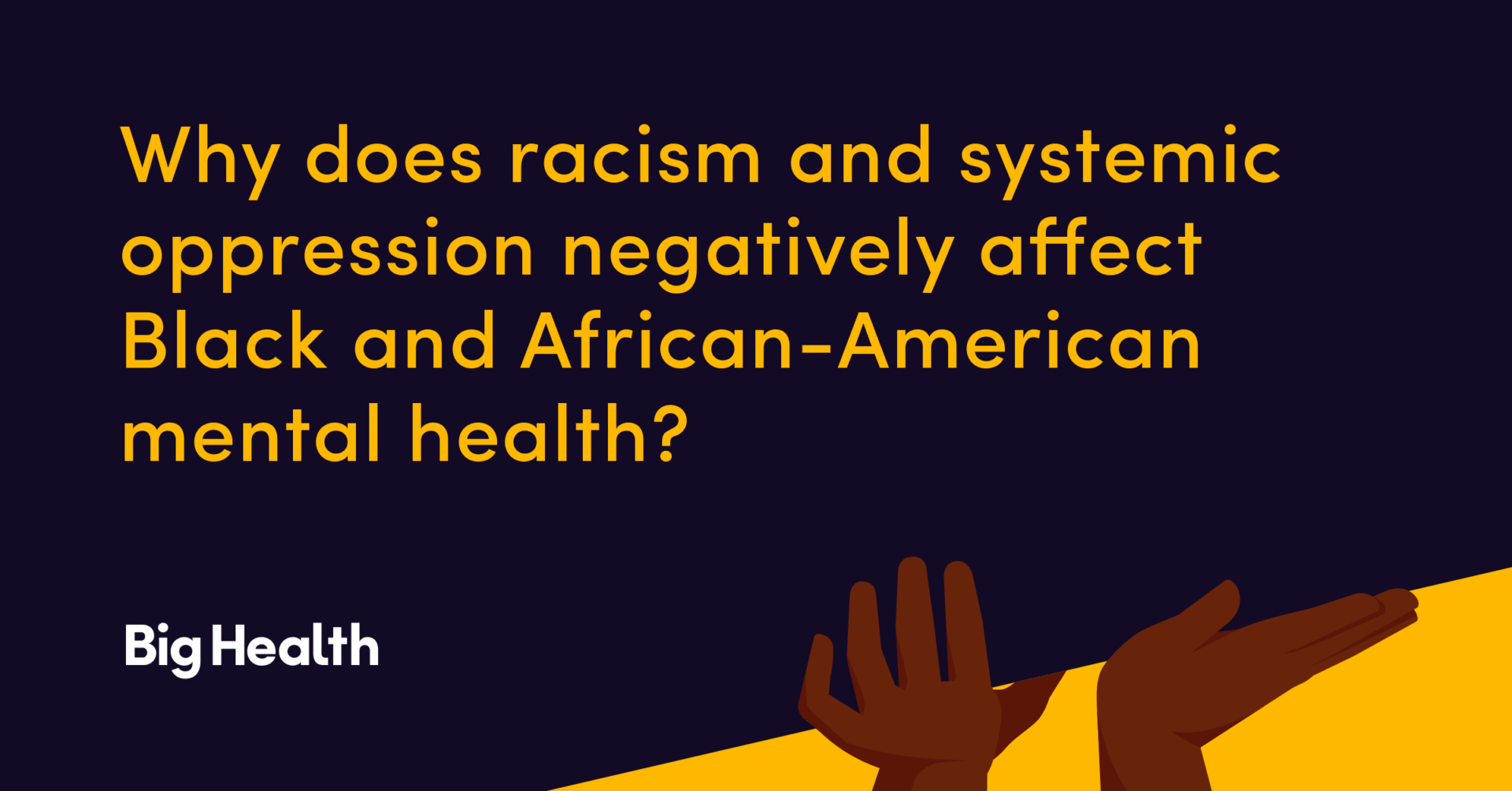As a Black woman in my mid-30s, I’m just one generation removed from the Jim Crow era.
This oppressive system created a racial apartheid that primarily dictated the lives of millions of Black Southerners and relegated them to second-class citizens. The legacy of this history still heavily impacts the lives of Black and African American people today.
Although Jim Crow is no longer here, being Black or African American means carrying around a stigmatized identity no matter where we go. This takes a big toll on the mental health of Black people, especially in the workplace.
I see the rippling effects of Jim Crow play out most acutely in the mental health of marginalized people — especially in Black and African communities. As a clinical psychologist with a focus on racial and ethnic health disparities, I examine why historically disempowered people tend to have poorer mental health.
Although Jim Crow is no longer here, being Black or African American means carrying around a stigmatized identity no matter where we go. This takes a big toll on the mental health of Black people, especially in the workplace.
Black people are extremely hesitant to take on yet another stigmatized identity, like a mental health condition. Oftentimes, this means Black people will avoid therapy — even when it could help address their mental health needs.
Growing up, Black Americans may hear family members discuss their negative experiences within the mental health care system. We know Black Americans are disproportionately more likely to be diagnosed with schizophrenia and psychotic disorders compared with other marginalized groups and white Americans. This creates a fear of being labeled as crazy.
This fear is valid. We have evidence that shows racial bias does exist within the mental health care system making it much harder for Black people to seek out mental health care. Even when Black Americans do choose to see a therapist, they may face racial microaggressions in therapy, which could leave them unwilling to seek out these services in the future. In one study, 53% of patients of color reported experiencing microaggressions in psychotherapy.
Even when Black Americans do choose to see a therapist, they may face racial microaggressions in therapy, which could leave them unwilling to seek out these services in the future. In one study, 53% of patients of color reported experiencing microaggressions in psychotherapy.
Even for someone like myself, who holds a Ph.D. in psychology and has a high level of mental health literacy, I’ve had difficulties finding the right therapist for me. When I first started searching for a new therapist several years ago, I wanted someone who is a Black woman, and also had expertise in the specific areas I needed help with. It was an extremely challenging search and I didn’t find the exact right fit. This is a barrier many marginalized people face when they decide to seek care, which is further compounded by the reality that there aren’t enough therapists to serve everyone who needs one, let alone enough mental health professionals of color.
While I recognized I needed professional help, that wasn’t always the case. Many Black people struggle with this same dilemma because of the unspoken understanding that a certain level of suffering is to be expected. Our parents and grandparents lived through Jim Crow; our ancestors were enslaved. For Black people, unfortunately, much of how we approach taking care of our mental health has been shaped by these hardships and generational suffering.
How employers can lessen mental health disparities among Black and African American employees
Employers have a big role to play when it comes to improving the mental health of their Black and African American employees.
To start, companies can’t assume that just because mental health resources are available, their Black and other minoritized employees will use them. For example, we know fewer than one in four Black Americans who need mental health care benefits actually receive care. Employers must understand whether these same patterns arise in their population, and even more importantly, why.
Employers have a big role to play when it comes to improving the mental health of their Black and African American employees.
One important fact is that mental health care needs to be culturally inclusive. That means making services as relevant and accessible as possible for the people who need them. For example, many in the Black community may not feel comfortable talking about their personal struggles with a stranger.
To round out and diversify their mental health offerings, employers can include digital therapeutics as a part of their benefits package. These clinically-proven solutions can provide the benefits of traditional therapy by providing evidence-based care, including cognitive behavioral therapy, without employees ever interacting with a mental health professional. Big Health’s digital therapeutics, Sleepio and Daylight, provide solutions for people who suffer from insomnia and anxiety, respectively.
There are many barriers that impede Black and African American people from using mental health care but it’s important to understand what’s stopping your Black employees from accessing the care they need. That way, you can customize the options you provide to meet those needs.
You can’t have one without the other; it’s virtually impossible to improve the mental health of any diverse population without establishing equity as a core part of a company’s DNA.
At the moment, we know employers are focused separately on both mental health and equity. By equity, I mean the concept of providing people with the resources they need, given their personal circumstances. I believe the key to an effective mental health strategy that will benefit all employees involves tying equity and mental health together. You can’t have one without the other; it’s virtually impossible to improve the mental health of any diverse population without establishing equity as a core part of a company’s DNA.
Big Health’s Mental Health Equity Assessment can help companies do just that. It enables employers to understand where they currently stand on the road to equity. Big Health then provides digestible and achievable next steps to improve.
Employers have the incredible power to chip away at and even dismantle systems of oppression that greatly contribute to the poor mental health of Black and African American people. Businesses have a huge opportunity and responsibility to take steps to change these repressive systems that affect us all, even those of us who aren’t marginalized. They can be the changemaker to create better mental health for all, including for Black and African American people.
US Disclaimer: In accordance with FDA’s Current Enforcement Discretion Policy for Digital Health Devices for Psychiatric Disorders, for patients aged 18 years and older, who are followed by and diagnosed with insomnia disorder or generalized anxiety disorder by a medical provider, Sleepio and Daylight can be made available as an adjunct to their usual medical care for insomnia disorder or generalized anxiety disorder, respectively. Sleepio and Daylight do not replace the care of a medical provider or the patient’s medication. Sleepio and Daylight have not been cleared by the U.S. Food and Drug Administration (FDA) for these indications.
UK Disclaimer: In the UK, Sleepio and Daylight are CE marked medical devices available for the treatment of Insomnia Disorder and Generalized Anxiety Disorder, respectively.


